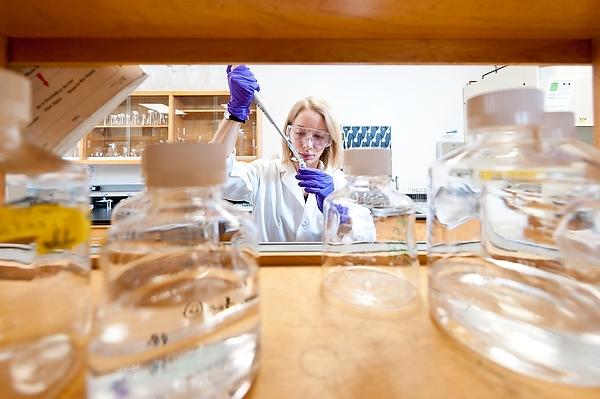Due to controversy surrounding topics like climate change, evolution and vaccination, researchers and citizens alike are becoming increasingly concerned about science literacy. To figure out just how science literate the American public is, two University of Wisconsin professors are serving on a National Academy of Sciences panel, and helped produce a report on the current state of science literacy.
The panel is using existing, peer-reviewed studies on science and health literacy to develop the report. They consider support for and attitudes toward scientific research, perception of the United States’ international standing in science, how science literacy in the U.S. compares to other nations, how science literacy has changed over time and more within their report. Following their results, the committee will make recommendations on how to improve Americans’ understanding of science.
UW education professor, Noah Feinstein, and life sciences communication professor, Dominique Brossard, are members of the panel.
“People use the phrase science literacy a lot and they make claims about what science literacy means and why it’s a good thing to be science literate, but there isn’t always a lot of evidence to back up those claims,” Feinstein said. “For instance, you’ll often see the claim that if people just knew more about science, they would be more supportive of aggressive policy on climate change. But in this country, there’s some evidence that the more educated you are, the more polarized you are about climate change, depending on your political affiliation.”
Defining science literacy has proven to be a daunting task, and one that the panel will likely devote a large part of the report to, Brossard said.
As for what prompted the study, even committee members are unsure.
“We have some guesses,” Feinstein said. “We think that there were people in Congress who were curious about the relationship between what Americans know about science and whether they feel supportive of scientific research, but that’s just speculation.”
‘Space screws up biology:’ UW botanist grows plants in NASA space station
The source of that curiosity remains a mystery. Despite a recent surge in concern about science literacy, it seems support for research in the U.S. remains high, Feinstein said.
A 2015 study by the Pew Research Center and the American Association for the Advancement of Science found that support for government funding of scientific research “tends to be widespread across the demographic spectrum.” According to the study, 74 percent of women and 68 percent of men said government funding of basic science pays off in the long run.
Feinstein noted the politicization of scientific issues — like evolution, climate change and vaccination — may be the cause of increased concern over public support for research.
“I think that there’s a lot of anxiety among scientists and decision makers that concern certain sections of the public about those issues, and the controversy over [them] is indicative of a larger trend,” Feinstein said. “So I think people look at the controversy over evolution and climate change and ask, ‘Wait a minute, does this mean that Americans don’t like science anymore?'”
UW professor wins Distinguished Teaching Award for bringing chemistry to children around the world
The panel has been charged with answering this question. To do so, they’ve enlisted help from scholars with a wide range of expertise: scientists, theoretical physicists, doctors and experts in science and health communication.
Panelists believe this will allow them to reach an objective conclusion on the current state of science literacy.
“The final report has to be approved by all of us, which means I’m not going to be signing off on one piece and someone else on another,” Brossard said. “We all have to agree on all of it, so it really is a consensus report.”
The report is expected to be published in early to mid-2017, according to a UW statement.













